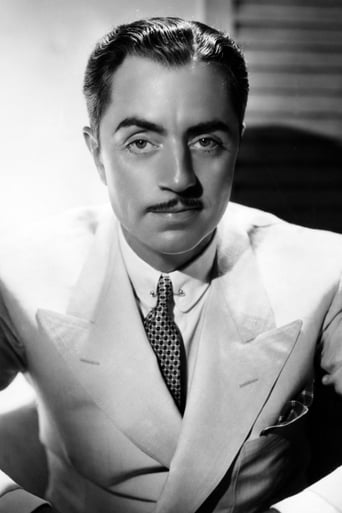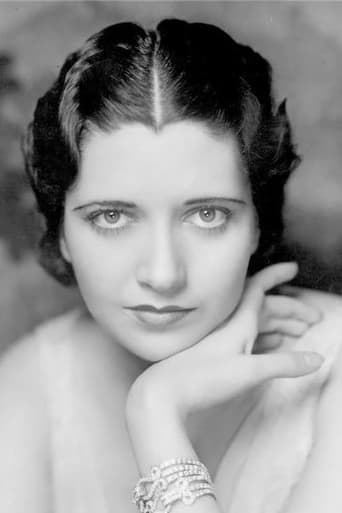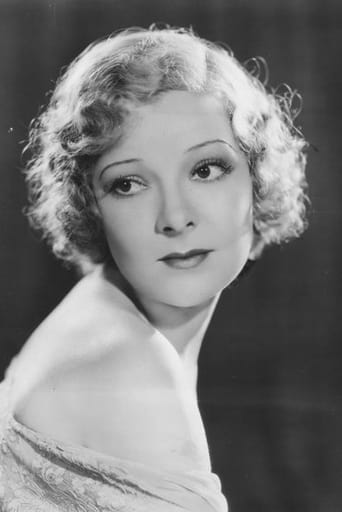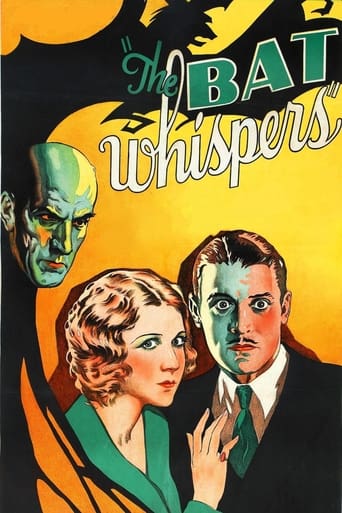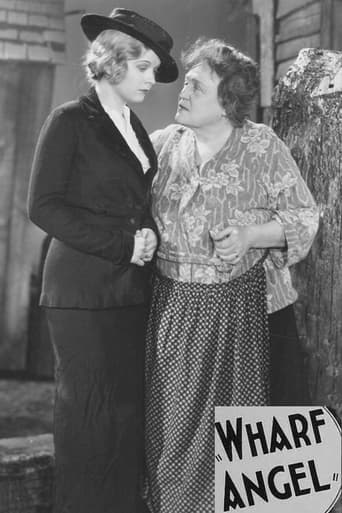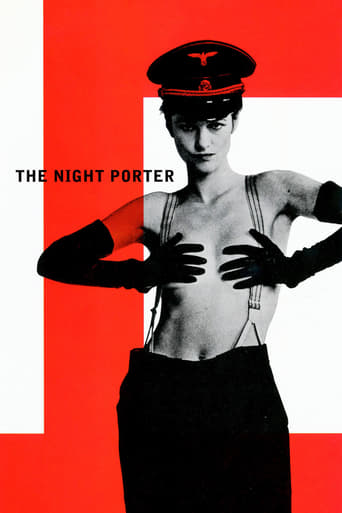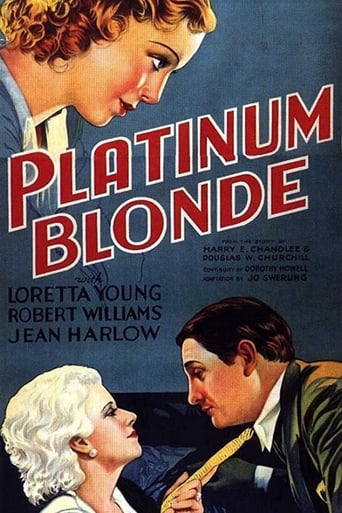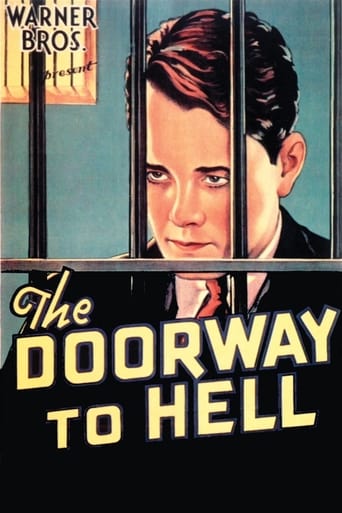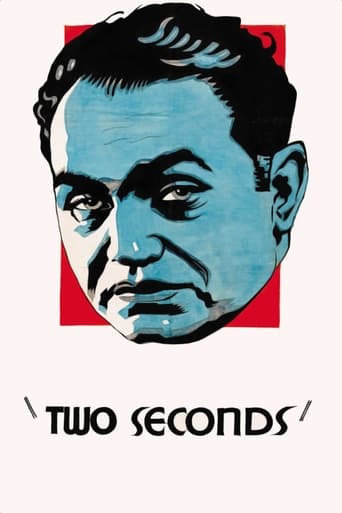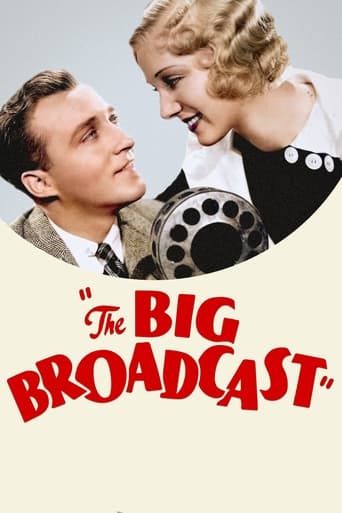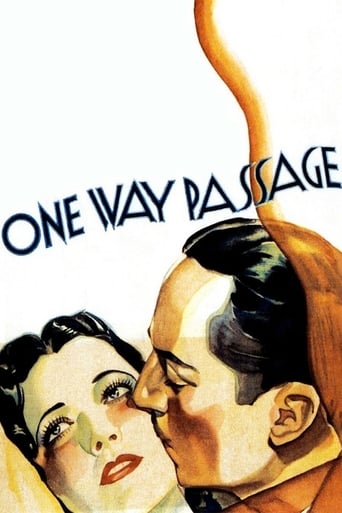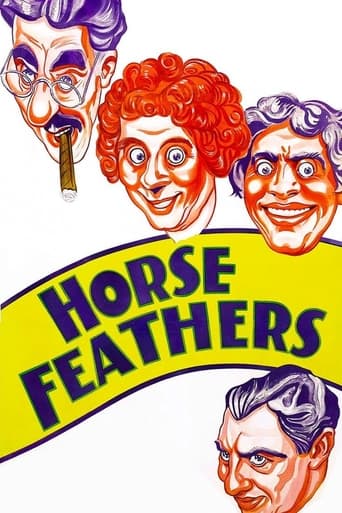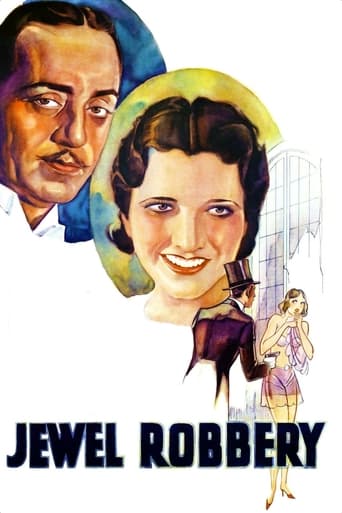
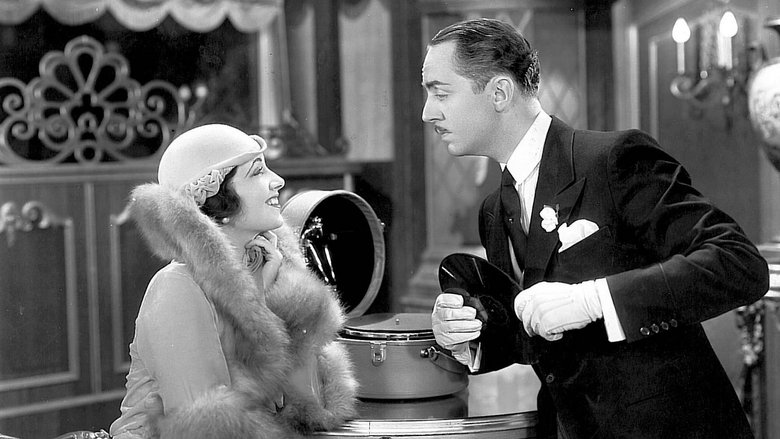
Jewel Robbery (1932)
A gentleman thief charms a Viennese baron's wife and also conducts a daring daylight robbery of a jeweller's shop.
Watch Trailer
Cast
Similar titles
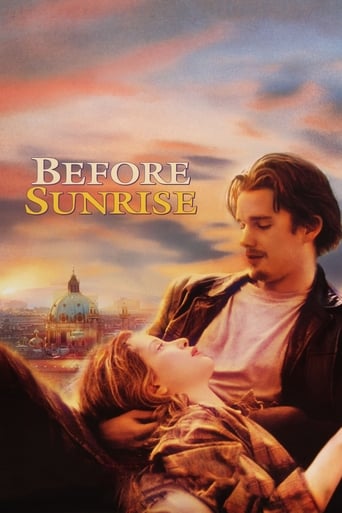
Reviews
Who payed the critics
i must have seen a different film!!
The performances transcend the film's tropes, grounding it in characters that feel more complete than this subgenre often produces.
Funny, strange, confrontational and subversive, this is one of the most interesting experiences you'll have at the cinema this year.
William Powell and Kay Francis made half a dozen movies together. Two of them were billed as comedies and they are their best. They were made and released within a few months of each other in 1932. The last one was more of a drama and love story, "One Way Passage." This film, "Jewel Robbery," is a caper comedy set in Vienna, Austria. It has a lot of dialog, mostly between the two leads. Powell plays the robber, whose name we never learn. Francis plays Baroness Teri, a wealthy and bored socialite who loves jewels, looks for excitement, and has had an adulterous affair with a diplomat she now wants to dump.Powell heads a large gang of jewel thieves who pull off a jewelry store heist in broad daylight. They've been doing this for some time and haven't been caught. The baroness and her friend, Marianne (played by Helen Vinson), lead lives centered around pleasure. Others in their wealthy circle are Teri's husband, Baron Franz (played by Henry Kolker), her lover Paul (played by Hardie Albright), and Marianne's husband, Count Andre (played by Andre Luguet). Alan Mowbray has a nice double role in the film as the robber's butler, Fritz, who also poses as a detective. And, Spencer Charters is very good as Johann Christian Lenz of the Vienna Protective Agency. The plot is simple, but far-fetched with a little melodrama at times that weakens it. This is mainly a two-person stage production of the Powell and Francis characters trying to seduce the other in subtle ways. It is done with verbal repartee and innuendo. There is humor and comedy here, obviously, and some satire of foreign police and the lifestyles of the wealthy. It also pans the character of a small segment of society as wastrels. Viewers in modern times should recall that this film was made in 1932. It was the heart of the Great Depression. Unemployment in the U.S. was 25 percent and it was over 30 percent in Austria. The depression was devastating on both the rich and the poor. So, here we have a film in which the place and people of the story seem oblivious to the world reality. But audiences who were going to see it were very much living in the reality of the time. Moviegoers in the 21st century, so far removed from the reality of the time and place, will see this film in a quite different light than the moviegoers of that time. Today, we may smile at the humor and waywardness of the baroness, and the comedy of the robbery. But in the 1930s -- even with the satire that more people would have seen, the public couldn't accept this escapist entertainment from the harsh reality of the day. And, the critics didn't think much of Francis' performance. The script doesn't try to hide the broader "messages" of the film. Consider this self-appraisal and confession by Baroness Teri with Paul. "I'm not a fine woman. In my own eyes, I'm shallow and weak." Paul, "But why?" Teri, "Because I go on living a shallow and weak life when, with a little courage, I could break away from it. I have all of the qualities to make quite a decent person, and what have I done with them? I fly about all day pursuing food, jewels, excitement. I don't love. I don't even suffer. I have nothing except boredom. In the morning, a cocktail. In the afternoon, a man. In the evening, very dull. That my dear minister of state is my picture of your Teri."Some reviewers think the cigarettes doping is marijuana. But, would a few puffs of "weed" lead men to the states we see here? And, what gives it a pleasant aroma? I think it was supposed to be cigarettes laced with opium. Expensive brands of perfumed cigarettes were common in Europe. I've smoked them in France and Germany. Laced with opium, one such smoke would likely put a man to sleep for several hours, as in this film. Opium and coke then were the big social drugs in Europe. They were even legal in England in the 19th century. This isn't nearly as good as most of the hilarious comedies and caper films that Powell made later. Incidentally – those came after the Hays code began to be enforced by the studios that established the code in the first place. But this is an adult film that most adults should enjoy. Viewers will enjoy it all the more who see the satire that viewers living in the hard times of the 1930s found it hard to enjoy. Here are a few of my favorite lines from the film – some acerbic, some satiric, some just funny. Baron Franz, "You use what weapons you can to get money – against a rich man, a revolver, against a poor one, his poverty. Isn't that right, Paul?" Paul, "Of course! We diplomats too are only effective when we have power and use it."The robber, "You're so lovely, it's hard to be brutal with you." Teri, "You do strike a fresh note. Up to now, men have always been brutal because I am lovely."Lenz (of the Austrian Protective Service), "What would happen if they started locking cabinet members in vaults as a regular habit?" Baron, "The country would probably have some peace."Teri, "Even though he's a robber to us, he stormed that shop like a hero."The robber, "I'd have allowed a lot more time for this robbery if I'd known you'd be here."Teri, "You can't invite me to do anything. Whatever you do must be by force."The robber, "Even a robber has to look out for burglars."
Jewel Robbery (1932)If you haven't seen why Pre-Code films are a riot—and very very well made— watch this one. Here the sassy, sexy, glammed up heist of a jewelry store becomes a game of manners and courtship. Jewels do in fact get stolen, but that's so not the point of the movie. Centerpiece is William Powell, the superstar status still to come with his "Thin Man" and "Godfrey" roles. He's in top form, always a bit peculiar but really lovable and suave because of it. One of a kind.Equal to him is Kay Francis, who is alive on screen like few actresses, and a great foil to Powell's cool. If Powell is still famous, Francis is not, and the reasons are not clear. (She was labeled "Box Office Poison" in a famous 1938 article, but that same piece labeled Joan Crawford and Kate Hepburn as well, both of whom had hardly begun their mature careers.) But Francis is a wonder in her heyday and you may as well start here to get why. (She was for years in the 1930s the highest paid actress bar none.)So if you aren't convinced to see this yet, take the set design, the tightly engineered photography and editing, and the overall direction by William Dieterle, who is an underrated master of the classic Hollywood years. Again, just see this for proof. As for the Code and its effect here, listen to the banter, which is fast and loaded with double entendres. No one skips a beat, and the fast swirl never gets confusing. Really a remarkably packed 70 minutes.
Decadent, frothy, amoral and deliciously funny -- sometimes to a rolling-in-the-aisles degree -- this film is likely to make your jaw drop with the delightfully brazen fantasy of it all: there's a real Viennese lightness to the tale of the Countess who longs to become an honest adventuress and the gentleman thief with a /modus operandi/ so civilised that his victims are caught completely off-balance -- it almost makes sense. (I particularly loved the gramophone in a hatbox that he carries everywhere with him, and the accomplice who deferentially presents him with a case containing the gun for use in the hold-up!) The dialogue demonstrates, not for the first time, that suggestion is far sexier than explicit grunt-and-heave, and the costumes are Hollywood fantasy writ large for the audience's delight. Suavity naturally rules, irony is writ large, and my only complaint was that I inadvertently guessed one of the plot twists a few minutes before the heroine did, thus losing the pleasure of the surprise. I suspect that the Middle-European setting in a famously frivolous Vienna allowed the script to dare even further than would otherwise have been permitted, but basically if you think you hear an innuendo and it's funny then it's probably entirely intentional...My main fear is that if I ever get to watch this again (probably unlikely, alas) it can't possibly live up to my memories of seeing it tonight, with a full house rocking with laughter and a freshly-restored print on the big screen.
Of course, good sophisticated comedy is ageless. This one's not top-notch, but is generally entertaining with an expert cast and witty dialog full of expected entendres. What it doesn't do is sparkle, probably because the director lacks the flair of a Cukor or Lubitsch as others point out. Also, the stage play origins are evident in some of the over-long scenes, such as the robbery sequence and Powell's apartment. Director Dieterle tries to compensate by keeping the cast in motion, but overstays the comedic potential. Note too, that the dialog makes no reference to the funny cigarettes. Instead, we're left to infer the brand from the silliness of their effects, which are about as exaggerated as the notorious Reefer Madness (1936).The subtext is in keeping with the Depression era, even though done with a lighter touch. Wealth is shown as unfulfilling (the Baron is on an expensive treadmill trying to keep the bored Francis happy), while authority comes across as inept (even the high-echelon Paul flounders). Revealingly, Francis has to go outside her circles to find "real romance", something her pampered pal Marianne also yearns for. At the same time, both fantasize about being "robbed" by the likes of Powell aboard a slow-moving train. Note too that, behind all the clever verbiage, Francis's frivolous Baronness is not a very likable person. The screenplay has her sense this by wishing she could break out of her gilded confinement and become a better person. Thus, Powell acts as something of a Galahad to her wishes, even though he's technically and tellingly on the wrong side of the law.Anyway, there's enough sophisticated charm and clever dialog to qualify this as a pre-Code comedy worth catching up with.
